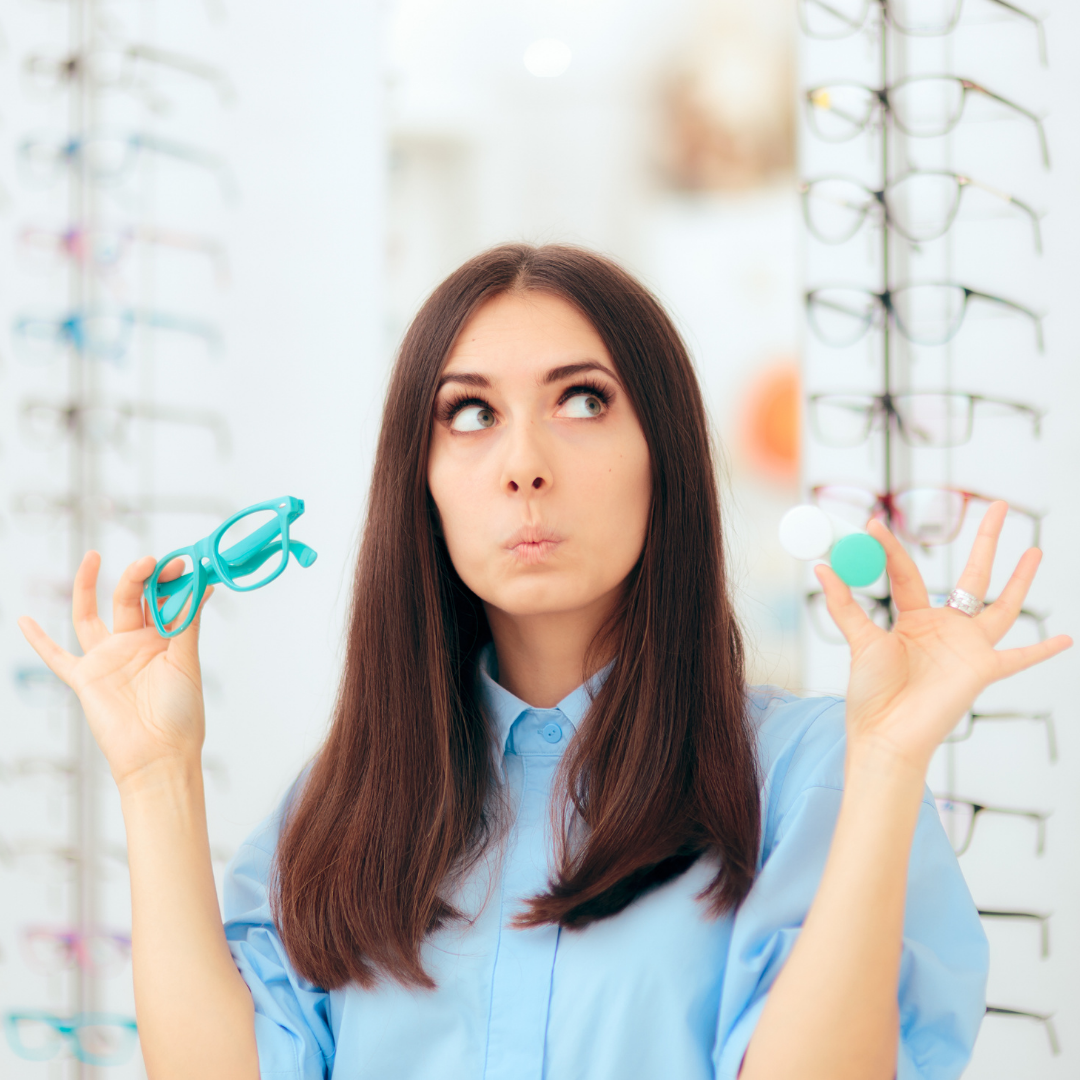Latest News & Events
Contact Lens Care
Contact Lenses are a great option for many people.
The CDC estimates that over 45 million people in America wear contact lenses.
If you are contemplating switching to contact lenses, it is important to know how that change can affect your daily schedule. Since contact lenses interact directly with your eye, properly caring for the lenses is crucial to avoid infection and irritation. Following hygiene instructions is crucial for your eye health.
The switch from glasses to contacts may seem overwhelming at first, it can quickly become routine and easy to manage.

Whether you have been a contact lens user for years or are brand new to using contacts, knowing how to properly take care of your contact lenses can feel overwhelming and tedious. Thankfully, as technology has evolved over the last decade, so has the way we ensure our contacts stay sanitary and working correctly.
Here is how you do that:
- Wash your hands before touching your contact lenses. Consider using a mild, non-fragrant soap to avoid any chance of irritation.
- Rinse your hands thoroughly, especially on the fingertips and nails.
- Dry your hands preferably using a lint-free towel.
- Don’t apply any moisturizers or lotions before inserting your contact lenses.
Here is what to do when removing your contacts at the end of the day: When removing your contacts at the end of the day, they must be put back in their container. Make sure you are not using expired solution by checking the date on the bottle or other parts of the contact lens packaging. It’s crucial to never use expired solution OR expired contact lenses.
Always use the provided contact solution. Never tap water or saliva!
Do your best to stick to the contact wearing schedule given by your doctor. It's not random-There's a reason for it! Unless you have specific instructions from your doctor, most contact lenses are not for night-time wear and must be removed before falling asleep. Only a certain type of contact lenses (extended wear) can be worn while sleeping. Failing to adhere to your optometrist's hygiene instructions can result in eye damage. If your contacts are giving you eye pain, blurred vision, any unusual discharge, or causing you to squint and not see properly, consult your eye doctor for an appointment.
It is also worth noting that an exam for contact lenses takes longer than a regular eye exam and requires frequent follow-up visits. Overall, contact lenses tend to be more convenient than glasses and extremely safe.
If you are considering the switch to contact lenses, there are several different kinds of contact lenses to choose from, depending on your needs. The most popular kind of contact lenses are soft contact lenses. Other types include bifocal and multifocal, extended wear, colored contacts, RGP/GP, and disposable. .Disposable contact lenses are soft contact lenses designed for one-time use.
Wisconsin Vision provides excellent options for contact lenses and contact lens care. Please see the Contact Lenses page on our website for more information on types of contact lenses, insurance options, appointment scheduling, and other recommendations.
Need to order contacts online?
Wisconsin Vision offers online ordering and shipping options for contact lenses for your convenience.